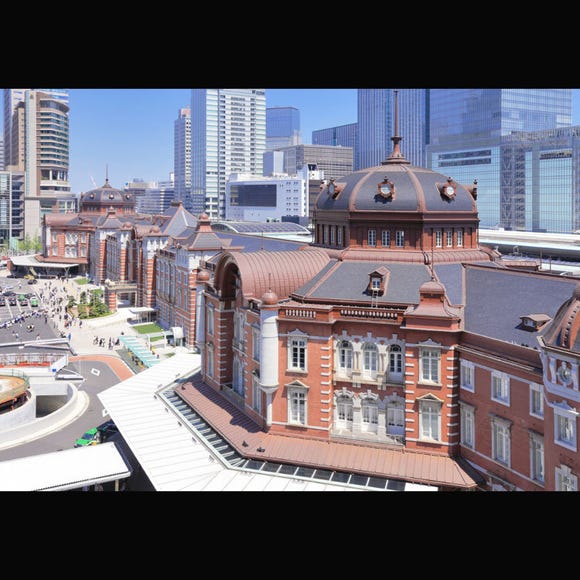
Easy There, Ninja Boy: 15 Facts That Japanese Really Want You to Know About Visiting Japan!
- Written by: Nao
While 'sushi', 'kawaii', and 'umami' have become words in English, Japan as a country still has some aspects that are misunderstood. As a Japanese writer, I've often found it curious how Japan is perceived abroad. Indeed, Japan has several hidden sides that have yet to be known for people around the world.
As the world is preparing to see a side of Japan like never before during the Tokyo Olympics, before you visit Japan, be sure to keep these 15 facts in mind that Japanese want you to know!
1) Not Many Japanese Speak English

Unlike other touristy cities around the world, you wouldn't find many Japanese people who speak English even in Tokyo. Because Japan had been and still quite is an insulated country, most people there hardly come across the situation that they feel English or other languages are necessary. Also, English education in Japan pretty much focuses on grammar more than speaking. Hence, Japanese might feel uncomfortable when an immediate answer to a question is expected in English.
But it doesn't necessarily mean the Japanese are unwilling to help. In fact, many people there are likely to try to understand and communicate with you anyhow. Using a map/picture or translation app may help you communicate more effectively with locals.
2) Buying Train Tickets Can Be a Bit of a Challenge!
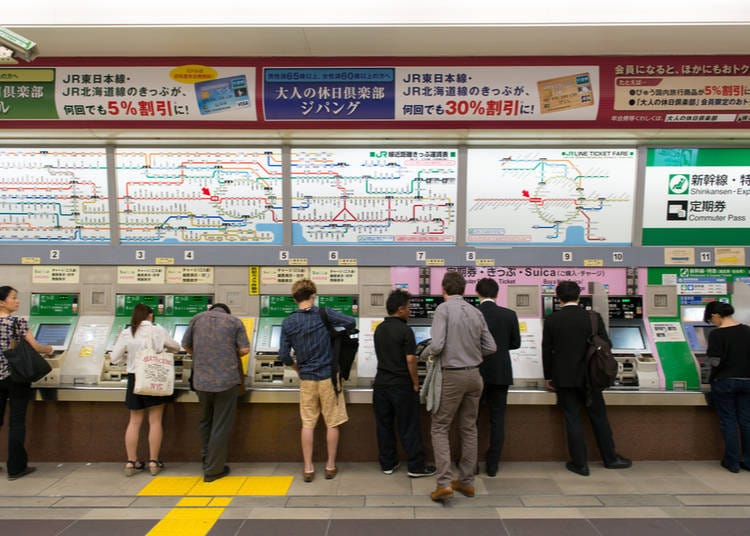
As there are several train companies exist in Tokyo, you'll also see several kinds of ticket vending machines. If you find the one which allows you to search for a ticket by the destination name, you are lucky. However, in many cases, you need to buy a ticket by selecting the fare, which means you must find out the right fare by yourself on the huge train route map shown above the machines.
But don't worry too much about it. It's troublesome even for Japanese. Hence, most Japanese use an app such as Google Maps for an easier fare search - or buy a contactless smartcard like SUICA or Pasmo, which will do the math for you. These smartcards can be used not just for trains and buses, but can also be used to pay for things at shops and even many vending machines.
To get a smartcard, you need to 1) visit the ticket counter at a train station or 2) use the ticket vending machine. It usually requires a 500 yen deposit which will be paid back when you return it.
3) People Don't Wear Kimono Everyday
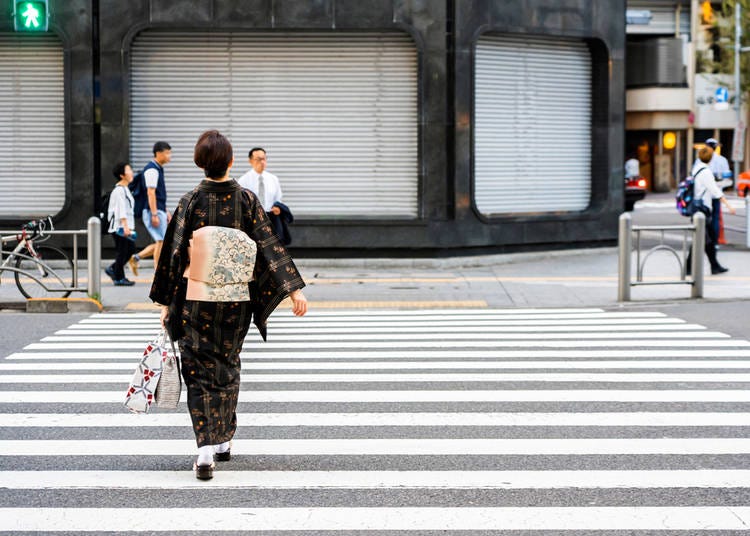
Yes, we all agree our traditional garment, Kimono, is wonderful. But, sadly, it is also true that it no longer suits daily life in the 21st century. Hence, it is relatively rare to see people in kimono nowadays except for some specific days in the year or on a special occasion.
However, you'll see some people enjoying themselves in kimono in places like Asakusa or Kamakura as it is now a big trend to rent it and wear while they are sightseeing.
Also, you'll likely to see many people wearing kimono at a temple/shrine during 'Shogatsu', from 1st to 3rd of January.
4) There Are No Ninja Anymore

I believe this fact is already known well. But, just in case you are looking forward to seeing one, I must say that there are no longer ninja in Japan as long as we know.
However, if you are really keen on ninja, you might want to look for them in Tochigi Prefecture - or at any of the themed restaurants, cafes, and bars!
5) Smoking in Many Restaurants Is NOT Prohibited

This might be a bit shocking for travellers from some countries. In Japan, it is often okay to smoke in a restaurant, cafe, izakaya, etc., so they usually have two separate rooms: smoking area and non-smoking area. While the laws are changing in certain areas, largely smoking/non-smoking is at the discretion of the establishment itself.
Furthermore, it is highly likely that smoking and vaping on the street is against local law. (And if you are a smoker, note that there are also smoking booths, mostly free of charge, on the street.)
6) No Tip Culture

You don't need to tip in Japan. To be more precise, you cannot tip in Japan. All the retail business, restaurant business, and any other customer services here are very strict with money handling. Hence, if you even leave the change as a tip, the staff will run after you to give it back to you even if it is only 1 JPY (worth less than 0.01 USD)!
7) We Don't Live With Robots, But...
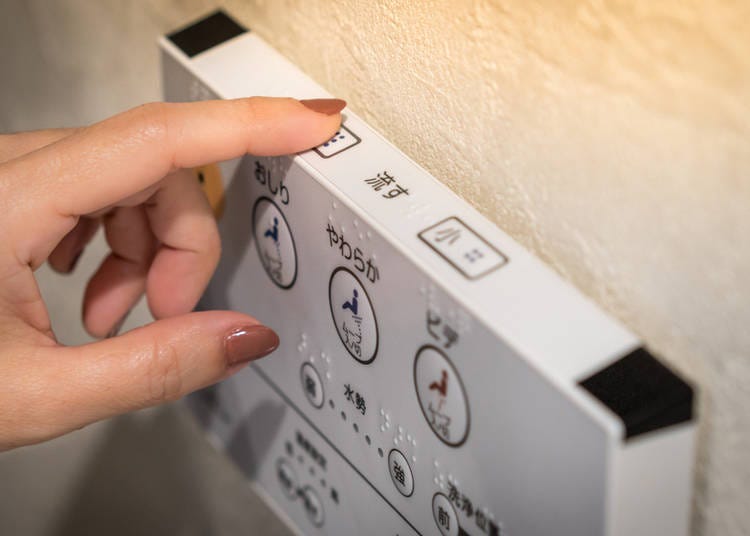
As a Japanese, I've been asked countless times if a house/hotel/office/and so on is fully equipped with super high-tech gadgets which are AI-equipped and can even talk.
And for a few times, I also met those who asked me if I had a robot butler or a robot pet at home, half-joking, half-serious!
Well, apart from the fact that we occasionally have a semi-humanoid robot in a station or a shop, most people in Japan don't live with a robot, nor are their houses fully loaded with futuristic devices.
But you may come across many appliances speaking instead of giving a beep to let you know, for example, a bath is prepared, or your meal has perfectly heated.
Furthermore, although most appliances don't automatically work as if they can think, they are most likely to have loads of functions which, in many cases, even the Japanese have no idea what some of them are for. Of course, it won't threaten your life if you press a random button out of curiosity, except for the toilet. You must remember not to press a button that you are not sure what it is on the toilet, as it might cause something quite unexpected to happen...(many toilets in Japan are equipped with Washlet, a water spray; you sure don't want that to aim when you're not expecting it!).
8) Japanese People Are Usually Nice, But...
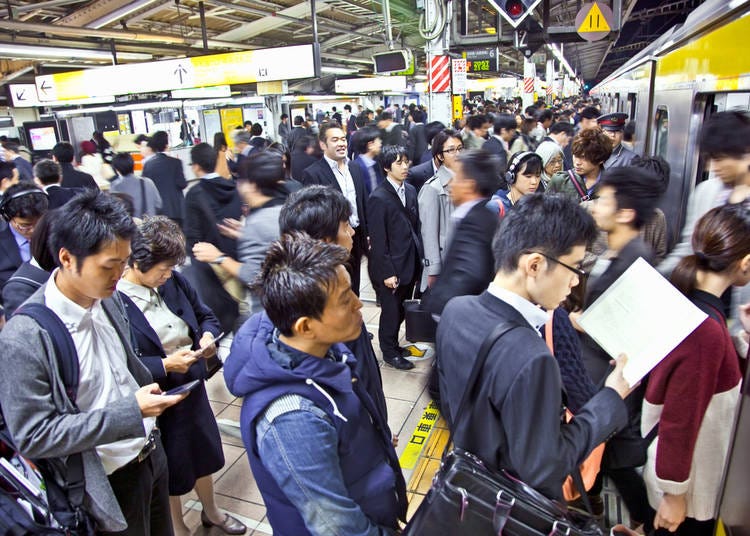
Generally speaking, Japanese people are happy to help travelers from abroad, and you'll find them quite friendly even in the middle of Tokyo, which has a rather fast pace of life.
However, there is a certain time that most people have no time to care about lost travelers: rush hour!
Because Japanese companies are quite strict about the starting time of work, during this time of the day, commuters, especially who are in stations and on trains, become like well-trained soldiers. And it might be a little bit frightening for those who are not used to to be pushed into a packed train which seems impossible to hold any more passengers. Hence, it is highly advisable to avoid traveling rush hours, typically from 7 am to 9 am in Tokyo and surrounding cities.
9) Summer in Tokyo is Sweltering!
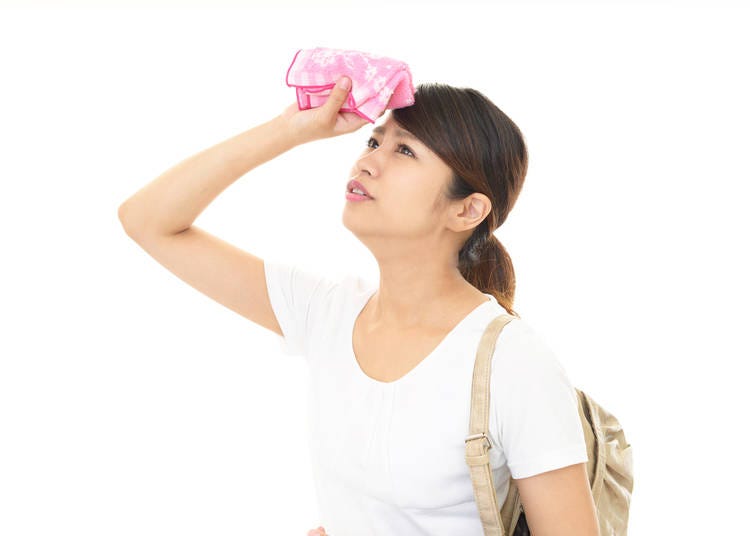
Having four seasons is one of the Japanese beauties, but summer hotness here is getting a bit out of hand in recent years.
In Tokyo, the city often called 'a concrete jungle', the temperature reaches 35℃. And horrible humidity causes the heat index to rise even higher. One more thing you need to know before visiting Japan in summer is it is chilly everywhere INSIDE. In a shop, restaurant, or on a train, wherever AC is on, you can expect it to be only 18℃ or so. So, I'd suggest you bring a light jacket with you as well as preparing yourself for extreme Asian summer.
10) Vegetarian Meals Have Yet to Become a Thing

The idea of being vegetarian is not accurately understood in Japan so far. So, unfortunately, it might take a while to find a restaurant that has vegetarian-friendly meals.
Also, you might want to double check carefully whether the meal really doesn't consist of any animal products - including soup stocks, because quite many people think vegetarians only avoid flesh.
11) The Japanese Don't Really Make the Gesture of Putting Hands Together

Almost every time I meet new people from abroad who don't know well about Japan, they make this gesture to me when they say "hello" or "thank you".
I can say all the Japanese who receive this gesture would understand that these people from different countries are trying to show us respect or friendliness, so we never get offended by it. However, what we also think is "they have mistaken an Indian or other Asian gesture for ours."
The thing is, we hardly make this gesture, probably only when we pray or beg. (Some people may do it when they thank or apologize, but it often gives others an impression of being old fashioned.)
Therefore, what you can do instead of this putting-hands-together gesture to make you look an expert of Japan's culture is a bow! Indeed, we bow a lot. So, you can use it when you say hello, welcome, thank you, sorry, excuse me, good-bye, and so on.
12) You Might Come Across a Mysterious Toilet
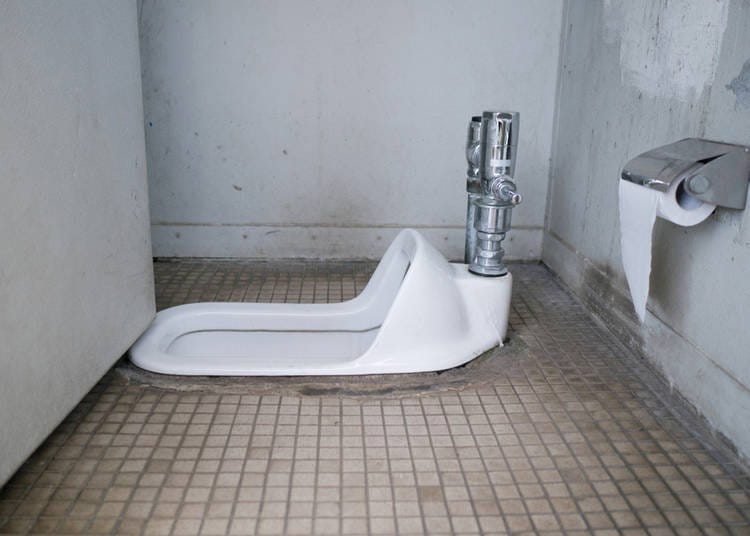
Here's yet another revelation of the Japanese toilet. In Japan, there are usually two types of toilets; what are called Japanese-style and Western-style. And the Japanese style one is a squat toilet which you might have seen somewhere else in Asia.
It still is a common type so you'll see it anywhere even in Tokyo, though it's getting less preferred by the Japanese, from young to older, and gradually disappearing these days. Thus, during your stay in Tokyo or around, you can almost always find the Western-style one. However, if you go on a trip to somewhere in the countryside, you might face a situation you need to deal with a squat toilet.
13) Prepare for Earthquake And Other Disasters

Unfortunately, it is an undeniable fact that countless disasters often hit Japan, from earthquakes to typhoons. And you might be surprised to see people are so used to it that they don't react much when, for example, a small earthquake occurs.
As a general fact, there is no need to worry about quakes too much, because Japan, a nation that has always had to deal with natural disasters, has the Building Standards Act which defines requirements around earthquake resistance.
However, it is still advisable to check beforehand what you should do in case of emergency, especially when checking in to your first hotel, as there might not be detailed information available in your language at the time of disaster.
14) Get Yourself Ready to Take Off Your Shoes
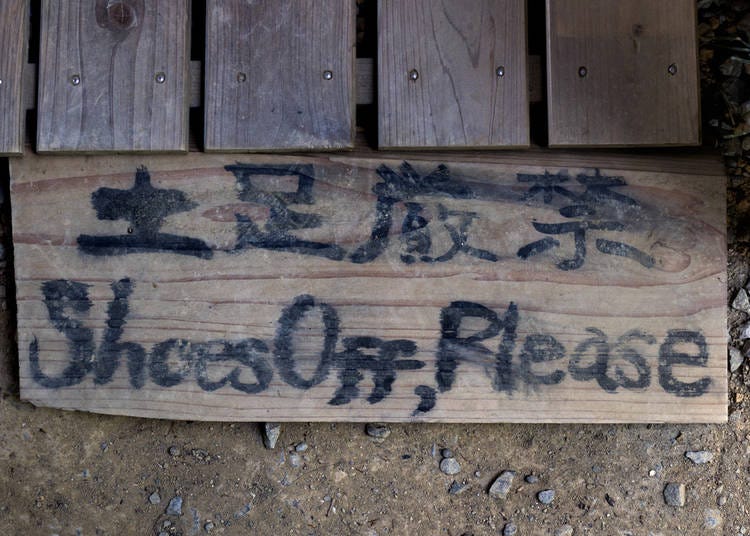
It is about time that Asian-taking-shoes-off culture was widely known. But how often do you expect to be asked to do so when you are in Japan?
If you plan to visit somewhere to feel the authentic atmosphere of Japan, such as historic architecture or some izakaya and Japanese restaurant, you'll be likely to be asked to take shoes off. Also, if you go inside a temple/shrine, you'll almost certainly need to leave your shoes at the entrance.
Furthermore, bear in mind that when you have to give up your shoes, it means there is a chance that you need to sit down on the floor as well!
15) Japan Is A Country of Contradictions!
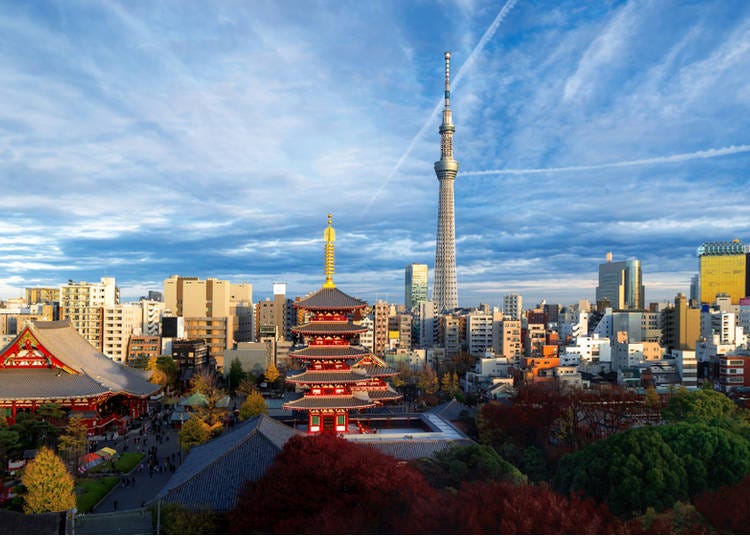
If you look into Tokyo, you'll soon find the city covered with skyscrapers - but peer past these and you'll soon see old shops with a long history, or even ancient temples and shrines alongside. And I would say Japan is just like that. A mixture of contradicted features.
It is developed, but long-lasted traditions still remain. It is modernized, while an old hat belief still exists. I must say it can be a bit of annoyance as it often confuses you. At the same time, however, I also believe that it is one of the charms of Japan that catches many travelers hearts.
Was there anything new to your eyes? I hope it will make you feel more comfortable during your stay in Japan!
Related Articles
A Japanese writer who is from a city by the sea. Started writing from the age of ten. Since then, pen and notebook have always been the best friend. Loves travelling, tea, and books.
- Area
*Prices and options mentioned are subject to change.
*Unless stated otherwise, all prices include tax.
Popular Tours & Activitiess
Recommended places for you
-

Akihabara Electronics: 7 Essential Stores in Tokyo for Tax-Free Deals & Unique Finds
by: Ran Tanaka
-
Ad

Get Your Perfect Custom Suit at GINZA Global Style PREMIUM Ginza Honten: Choose from 5,000 Fabrics, Starting at 26,400 Yen (incl. tax)!
-
Ad

A Tokyo Souvenir with Soul: The Handcrafted Leather of Bunkoya Oozeki
-
Ad

Feeling Unwell While Traveling? HOTEL de DOCTOR 24 is Japan's Sole 24-Hour Online Medical Consultation Service
-

Half-Day Getaway from Tokyo: Cherry Blossoms, Local Culture and Samurai Vibes at Odawara Castle
-

Where to Buy Electronics in Ikebukuro: 6 Tax-Free Shops for Tourists in Tokyo
by: Ran Tanaka
Inspiration for Accommodations
-

Enjoy Mt. Fuji from the Comfort of Your Room! Recommended Ryokan with Mt. Fuji View
-

Stay Near the Cherry Blossoms! Hotels for Cherry Blossom Viewing in Tokyo
-

Family-Friendly Hotels with Free Shuttle to Disneyland: Convenient Access for a Magical Stay
-

Top Ranked Hakone Hotels with Mt. Fuji View: Enjoy Stunning Scenery from Your Private Space
-

Convenient Tokyo Hotels with Airport Shuttle: Ideal for Families and Heavy Luggage
-

Stunning Tokyo Tower View Hotels: Enjoy Spectacular Scenery from Your Private Space
-

Convenient Asakusa Hotels with Kitchens: Ideal for Extended Family Visits
-

Experience Luxury: Hakone's 10 Best Five-Star Accommodations
-

Enjoy Mt. Fuji Autumn Leaves! Top Hotels Near the Popular Autumn Leaves Corridor
-

Experience Hakone Fall Foliage from Your Room with Stunning Views
-

Meiji Shrine (Meiji Jingu): Exploring the Sacred Sanctuary of Peace in Bustling Tokyo
-

(Video) OFF-KAi!!: An Akihabara Hair Salon for Anime Fans
by: Holly Neslusan
-

Shopping in Shibuya: 3 Hot Souvenir Shops and Popular Products Among Tourists!
-

Best Things to Do and See Around Tokyo in September: Events and Festivals in Kanto
-

Dream Guide to Tokyo’s Top 8 Super Fluffy Pancake Shops
-

JR Edition: Visit all of Tokyo in one Day with the Tokyo Metropolitan District Pass!
- #best ramen tokyo
- #what to buy in ameyoko
- #what to bring to japan
- #new years in tokyo
- #best izakaya shinjuku
- #things to do tokyo
- #japanese nail trends
- #what to do in odaiba
- #onsen tattoo friendly tokyo
- #daiso
- #best sushi ginza
- #japanese convenience store snacks
- #best yakiniku shibuya
- #japanese fashion culture
- #best japanese soft drinks

















